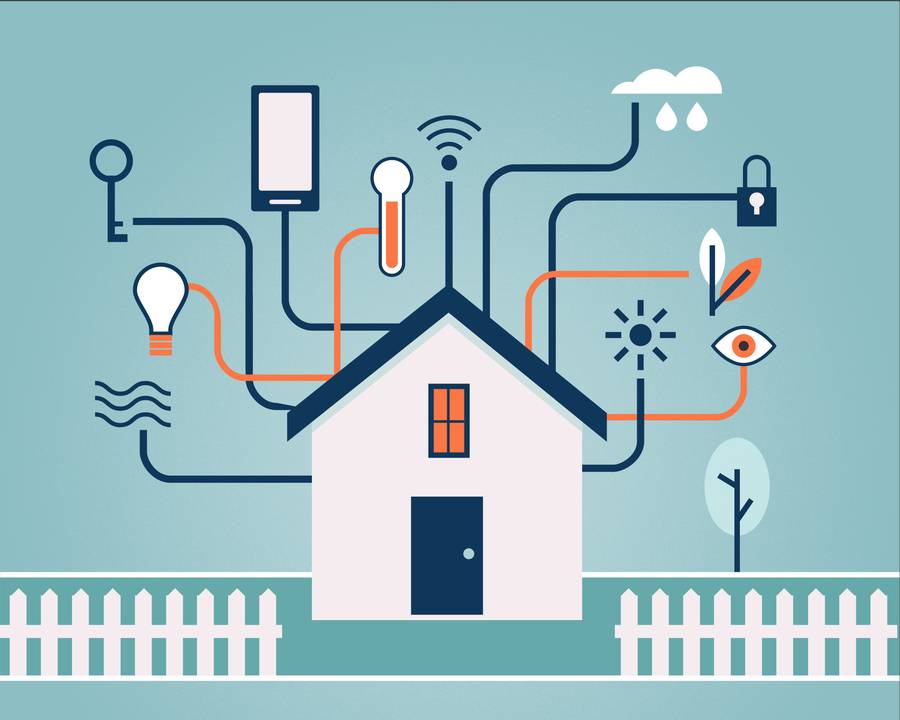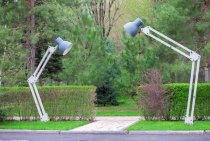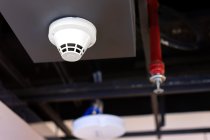Wiring Systems for Smart Homes

August 19, 2025
Wiring Systems for Smart Homes
Neighborhood Electric's professional electricians understand all aspects of wiring for smart homes to provide smooth installations of these devices that control lighting, temperature, and security systems for those seeking to modernize their living spaces. Neighborhood Electric knows and understands these basic wiring practices for optimal installation of smart devices in smart homes for our customers looking to modernize.
What Is Smart Home Automation?
Smart home automation refers to using technology to control and monitor different aspects of your home - lighting, heating, security cameras, and kitchen appliances, among them - from one central device such as your smartphone or tablet. For example, you can set your lights to turn on automatically when you enter a room or have your thermostat adjust the temperature based on your schedule.
The Importance of Wiring in Smart Homes
Wiring plays a crucial role in how well your smart home devices communicate with one another. While many modern gadgets rely on Wi-Fi, having wired connections for critical systems like security cameras, lights, and thermostats can offer better reliability and faster response times.
Imagine if your Wi-Fi signal dropped in the middle of the night, and your security camera or alarm system stopped working. With wired connections, you don't have to worry about these disruptions. An electrician can identify if any upgrades are needed to handle the additional load from smart devices, ensuring that everything operates smoothly and safely.
Hiring an Electrician for Smart Home Wiring
When considering upgrading your home to include smart devices, the first step is to contact a licensed electrician. A professional will know how to install the wiring and ensure it’s up to code.
Older homes may sometimes need more electrical infrastructure to support modern smart devices. If you live in an older home, you might need an electrical repair service to fix or update wiring before smart home automation installation can begin.
The Benefits of Smart Home Automation Installation
There are many reasons why people are turning to smart home automation installation. Instead of manually adjusting the thermostat or turning lights on and off, you can do it from your smartphone or tablet. Many smart systems allow you to automate tasks so they happen automatically based on your preferences.
Smart home systems also help homeowners increase energy efficiency. By monitoring energy use and making necessary adjustments accordingly, these smart systems allow people to monitor energy use more closely while saving energy and reducing utility bills. Smart thermostats, for instance, can learn your schedule to reduce heating or air conditioning bills when no one is home—saving energy while saving on utilities!
Home automation systems can also increase home security. They enable you to remotely monitor your property by installing cameras, sensors, and smart locks; in the event that anything out-of-the-ordinary occurs, you'll receive an alert on your phone so you can take immediate action. Having an electrician properly wire these systems ensures they operate consistently without failing when critical moments arrive.
Preparing Your Home for Smart Automation
Before installing smart home automation, evaluating your current electrical system is essential. This includes checking your wiring, circuit breakers, and outlets to see if they can handle the extra demand from new devices.
Many older homes were built before the rise of smart technology, so they may need more capacity to support multiple high-tech gadgets. You might need an electrical repair service to bring your home up to date.
Wiring Options for Smart Homes
There are several wiring options for smart home systems. One of the most common is Cat6 or Cat5e wiring, which is used for Ethernet connections. These wires can support high-speed internet, essential for many smart devices. Additionally, fiber optic cables may be used in some smart home setups.
Powerline networking is another option. This technology uses the existing electrical wiring in your home to create a network connection, allowing smart devices to communicate without running new wires. However, a professional electrician will likely recommend direct wiring for reliability for critical systems like security cameras or thermostats.
Neighborhood Electric
Wiring for smart homes is a vital part of successful home automation. Working with a qualified electrician and an experienced electrical repair service ensures your systems are functional and safe. Proper wiring and smart home automation installation will allow you to enjoy a more convenient, energy-efficient, and secure home for years.








